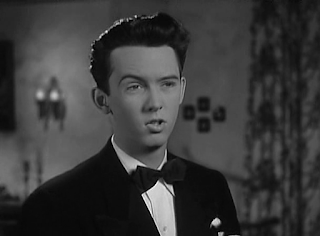Équation à un inconnu AKA Equation to an Unknown (Francis Savel [as Dietrich de Velsa], 1980)
Yann Gonzalez's Un couteau dans le cœur AKA Knife+Heart (2018) is one of my favorite films of the teens. So when I learned he was behind the resurrection of an obscure French gay porn film, Équation à un inconnu, the only film by painter Francis Savel, it became the easiest sell of 2020. Savel was renowned enough that in 1964 Guy Gilles directed an 18-minute portrait of him called Le Journal d'un combat with narration by Alain Delon.
He was also owner and artistic director of La Grande Eugène, "the first transvestites' cabaret of Paris," according to a press release from Altered Innocence, the label that released the film on Blu-ray. It's a role that served him well in capacities on two late Joseph Losey films - director of the cabaret show in Mr. Klein (1976) and costume/musical consultant for Don Giovanni (1979), both under the name Frantz Salieri.
Savel's painterly disposition is evident in many gorgeous shots from Équation à un inconnu.
But the most compelling quality of the film lies in how much it owes to a cruising aesthetic than coherent narrative form. Containing almost no dialogue and peopled with bodies not characters, Équation à un inconnu observes the coldness with which young men engage with and then detach themselves from sexual encounters. At various points, older men play resigned witness to the ceaseless drift, granted just enough screen time to frame the sex with a palpable melancholy.
Indifference is the key emotional register. Savel makes sure to show a man walking past a scene of unspecified intensity. A café worker breaks up a blow job in the café bathroom but then urinates in the toilet as if nothing just happened. The climax begins with a lineup of beautiful guys in a tableau vivant with one boy sulking in the corner. Even the sunnier end-credits sequence is off-putting as two boys seem to be whistling along with the non-diegetic score.
The problem for more casual viewers is that these modernist moments are so fleeting (perhaps appropriately so) that it becomes difficult to recommend Équation à un inconnu on an art-film level. The film is more of a slog than the average porn film of the era and not all that pleasurable to watch (again, perhaps appropriately so). No doubt I'm overrating it a tad. But it's a deeply curious thing that invites viewers to engage with and detach from it. So don't watch it; cruise it.
Grade: A-minus
Labels: classic gay porn






























